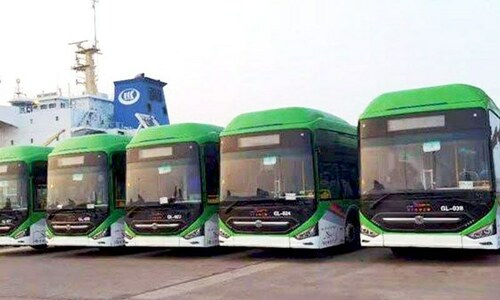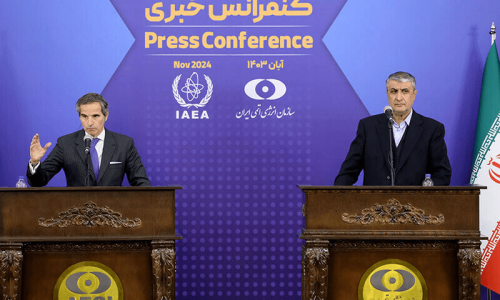KARACHI: Sindh Chief Minister Syed Murad Ali Shah on Wednesday said that the provincial cabinet had decided in June to resettle the locally displaced people (LDPs) whose around 6,500 houses along three major storm water drains had been demolished.
Speaking at the meeting of the Provincial Coordination and Implementation Committee (PCIC) here, he added that around 250 acres of land was needed keeping in view the requirement of 80sq-yards each for one unit.
Karachi Corps Commander Lt Gen Mohammad Saeed, Chief Secretary Mumtaz Shah, CM’s Law Adviser Murtaza Wahab, Planning & Development Board chairman Hassan Nqavi, NED University Vice Chancellor Dr Sarosh Lodhi, Karachi Commissioner Iqbal Memon and others were also present.
Mr Shah said the Lyari Development Authority (LDA) had been directed to spare 500 acres of land at Shaheed Mohtarma Benazir Bhutto Township (SMBBT) and the Malir Development Authority (MDA) to spare 250 acres of land in Taiser Town Scheme-45 for LDPs.
He said it seemed feasible that each displaced family was to be resettled in a housing unit, for which an amount of Rs10 billion would be required for the construction of 6,500 housing units and to develop infrastructure and amenities.
Solid Waste Management Board will collect municipal fees from Karachi, PCIC meeting told
He added that Rs6.5bn would be earmarked for the construction of housing units and remaining amount of Rs3.5bn would be earmarked for infrastructure development and amenities.
As per a report furnished by the municipal commissioner of the Karachi Metropolitan Corporation, progress on three major nullahs was are follows:
Mehmoodabad Nullah: All the 238 intercepting units have been demolished whereas an amount of Rs104million has so far been distributed as compensation amongst the eligible LDPs.
Guijar Nullah: All the 4,058 intercepting units have been demolished whereas Rs260m has so far been distributed as compensation amongst the eligible LDPs.
Orangi Nullah: As many as 1,696 intercepting units out of 1,703 have been demolished whereas Rs145m has so far been distributed as compensation amongst the eligible LPs. Only industrial units of sub-division SITE are left to be demolished soon.
Green Line launch this month
The CM said that the Green Line Bus Rapid Transit System (BRTS) would be launched during the current month and Yellow Line BRTS in March 2022.
The meeting was told that the Green Line corridor up to Numaish had been completed and turnstile live had also been tested. It was informed that phased commercial operation would be commenced in late December which would be subsequently fully operated in Jan 2022.
It was informed that integration of the Orange Line with Green Line had been requested while the Sindh Infrastructure Development Company Limited (SIDCL) had requested the provincial government to approve the fare on the basis of ‘input costs’.
Orange Line Corridor (3.88 km) and all its structures of bus depot had been completed and electrical/mechanical and finishing works were in progress and expected to be completed in the current month, the meeting was told.
Operations for three years have been mandated to the SIDCL. The project has almost been completed. The buses for the project have also been landed in the city. The meeting decided that Green Line would be launched with 75 buses from the current month.
The Sindh Solid Waste Management Board (SSWMB) managing director told the meeting that the board was performing front-end collection services in districts East, South and Malir. “The front-end operations of district West, which were suspended in 2018, have been resumed in October 2020,” he added.
SSWMB to collect municipal fees in Karachi
The meeting was told that municipal solid waste had huge revenue potential in terms of household service not only in the residential areas but also in all commercial areas and restaurants and industrial units. As per law they were mandated to pay municipal cess/fee for the service which was being provided to them, it was added.
The SSWMB chief said the informal sector and unauthorised persons under the patronage of municipal committees were collecting household fees even in the areas where the SSWMB was providing services. “As an estimate, there is a potential of more than Rs3.5 billion per annum which can be generated from the residential areas of Karachi alone,” he added.
The SSWMB has decided to collect municipal fees from the residential and commercial areas of Karachi and mandated the management to explore operations for collection of fees.
The meeting was told that approximately 15,000 industrial units in the city also generated more than 1,500-2,000 tonnes of municipal waste. The SSWMB was also exploring options to collect fee/cess each from industrial units for the municipal services the SSWMB was providing.
K-IV project
The project director of K-IV water supply scheme informed the meeting that as per the Executive Committee of the National Economic Council (Ecnec) decision, the executing agency of the project had been changed from the Karachi Water and Sewerage Board (KWSB) to Water and Power Development Authority (Wapda).
The conveyance system of K-IV project (Phase-I) along with the power component will now be carried out by Wapda whereas the augmentation project will be carried out by the Sindh government through a World Bank-funded project.
The meeting was informed that all the site offices along with equipment and relevant records had been handed over to Wapda and physical handing over of complete right of way of 121.9 km after a joint survey by Wapda & KWSB had also been done.
Malir Expressway
The meeting was told that the M9-N5 Link Road Pproject served as the commercial corridor providing upcountry access to the traffic emanating from Port Qasim, industrial areas of Landhi, Korangi and Steel Mill was located at the heart of Karachi’s three major projets — Bahria Town, DHA City and Education City.
The CM was told that five kilometres of land belonged to the army and work there had been stopped. At this, the corps commander told the chief minister that a no-objection certificate for continuing work on military land would be issued latest by Friday.
The meeting was informed that Malir Expressway would be a four-lane dual expressway along the Malir river from Hino Chowk near KPT flyover to Karachi-Hyderabad Motorway (M-9) near Kathore via Link Road.
The total length of the expressway will be 39.3 km. The proposed expressway will provide a new southern alternative route for carrying port traffic and traffic from industrial areas to main highways.
Published in Dawn, December 2nd, 2021













































